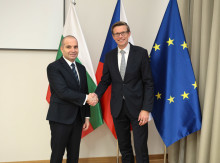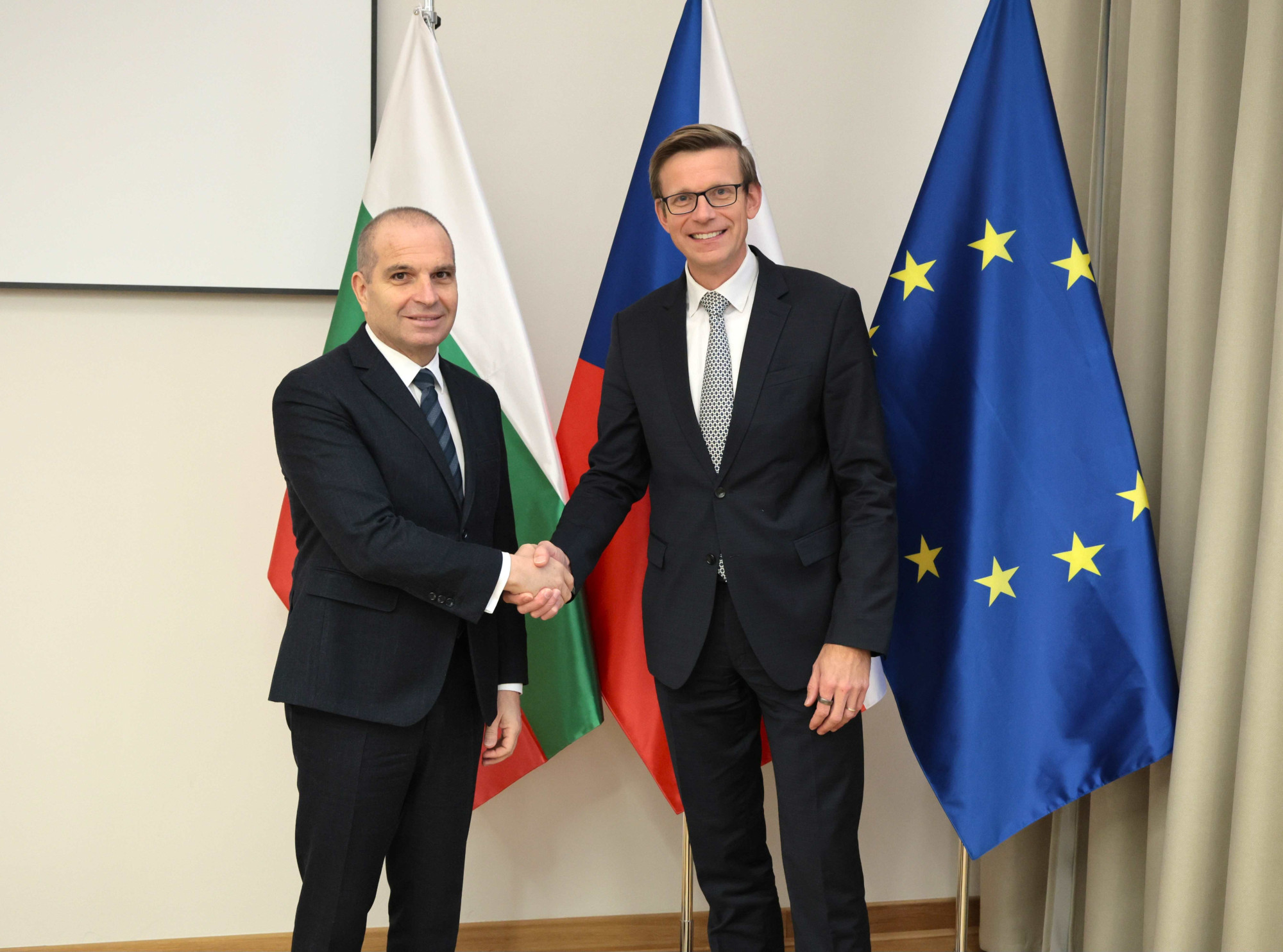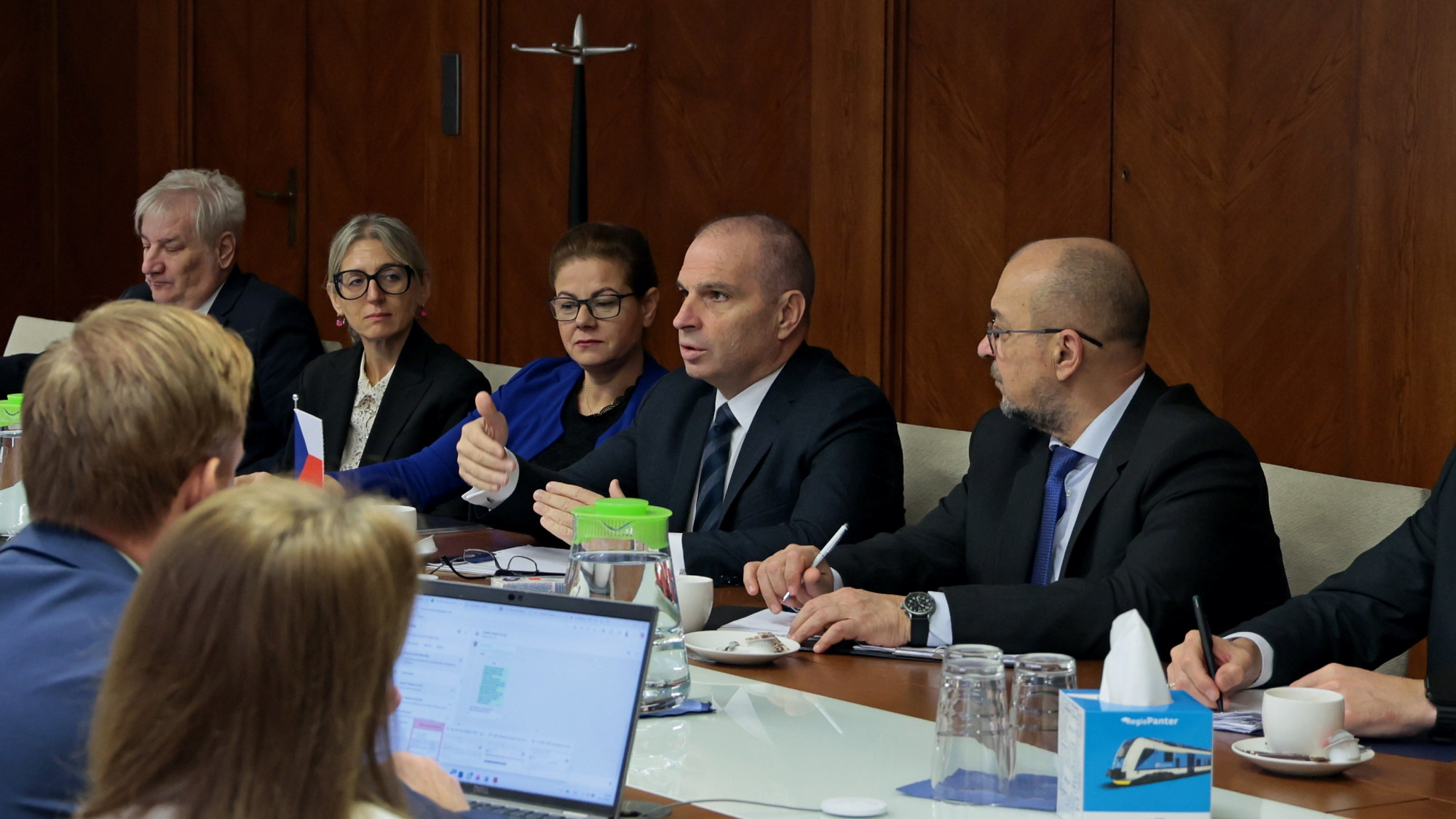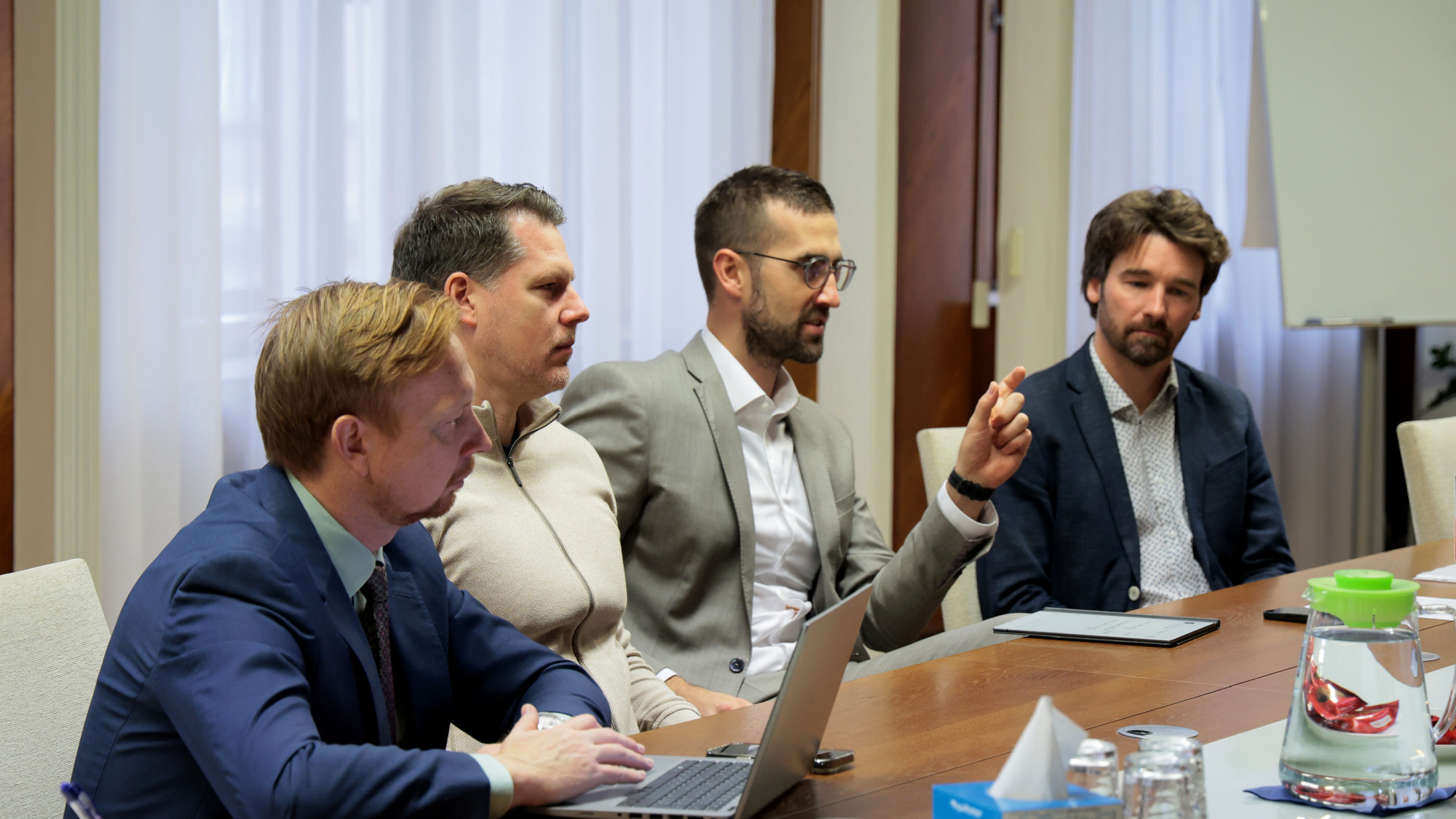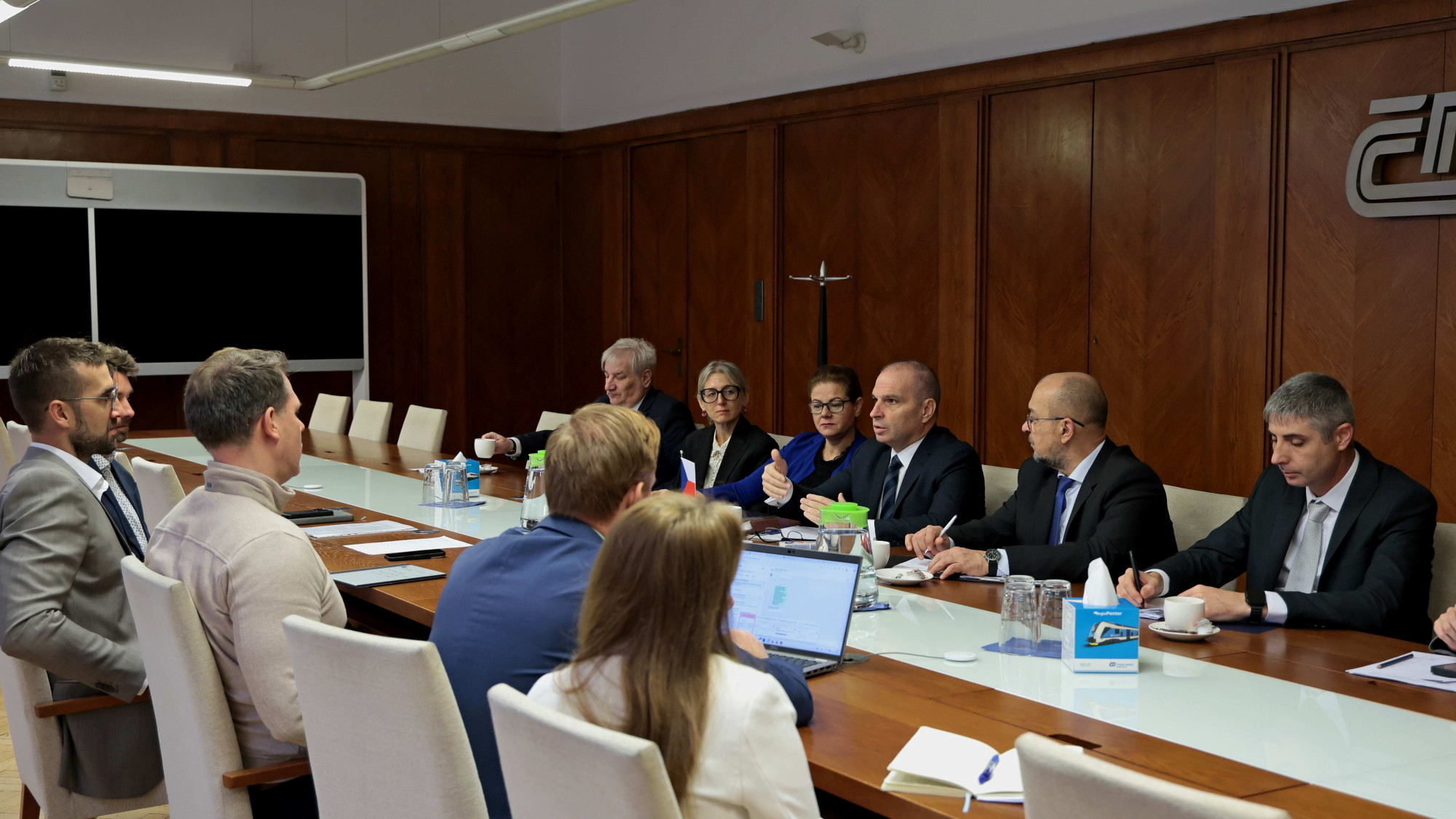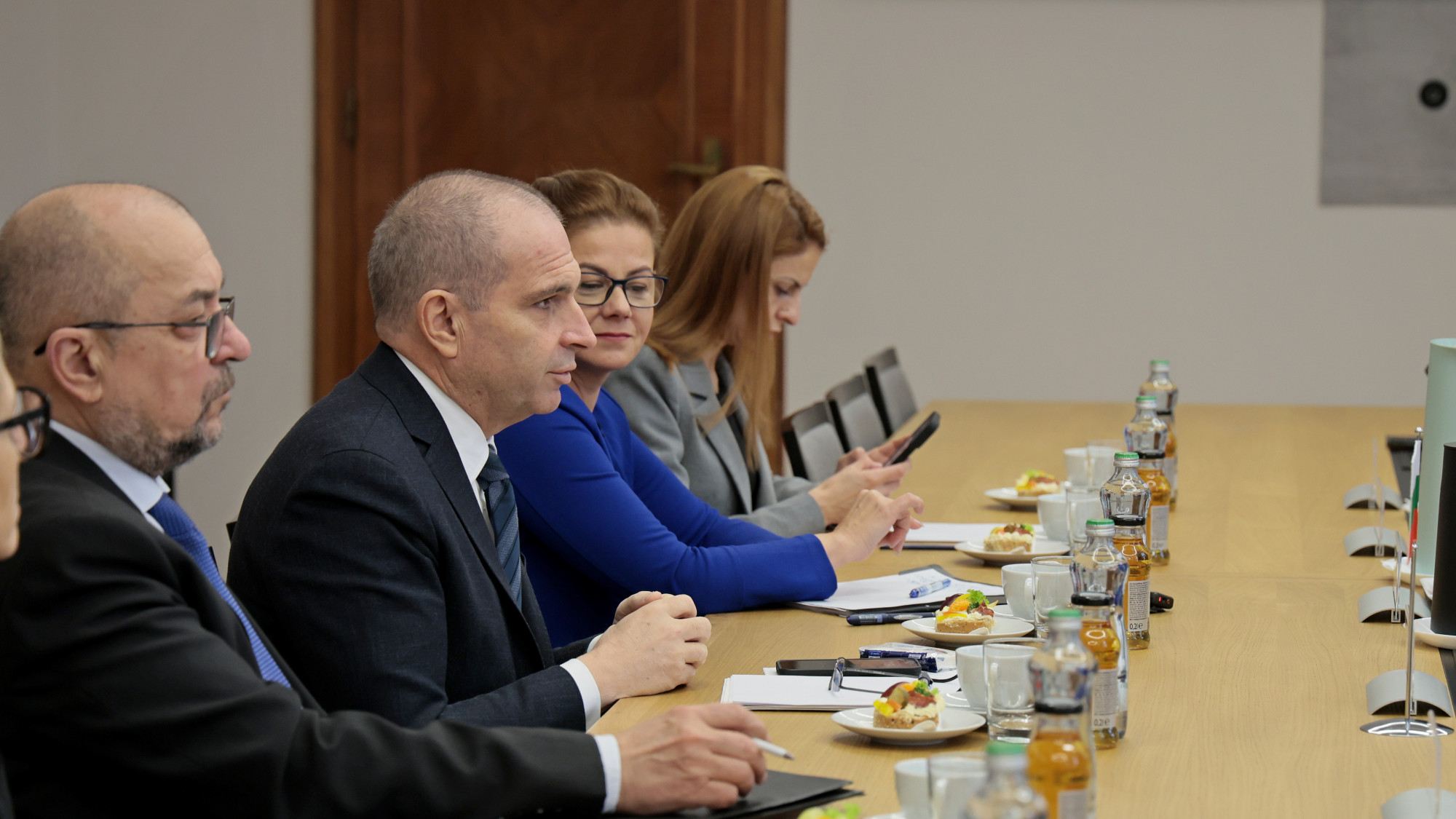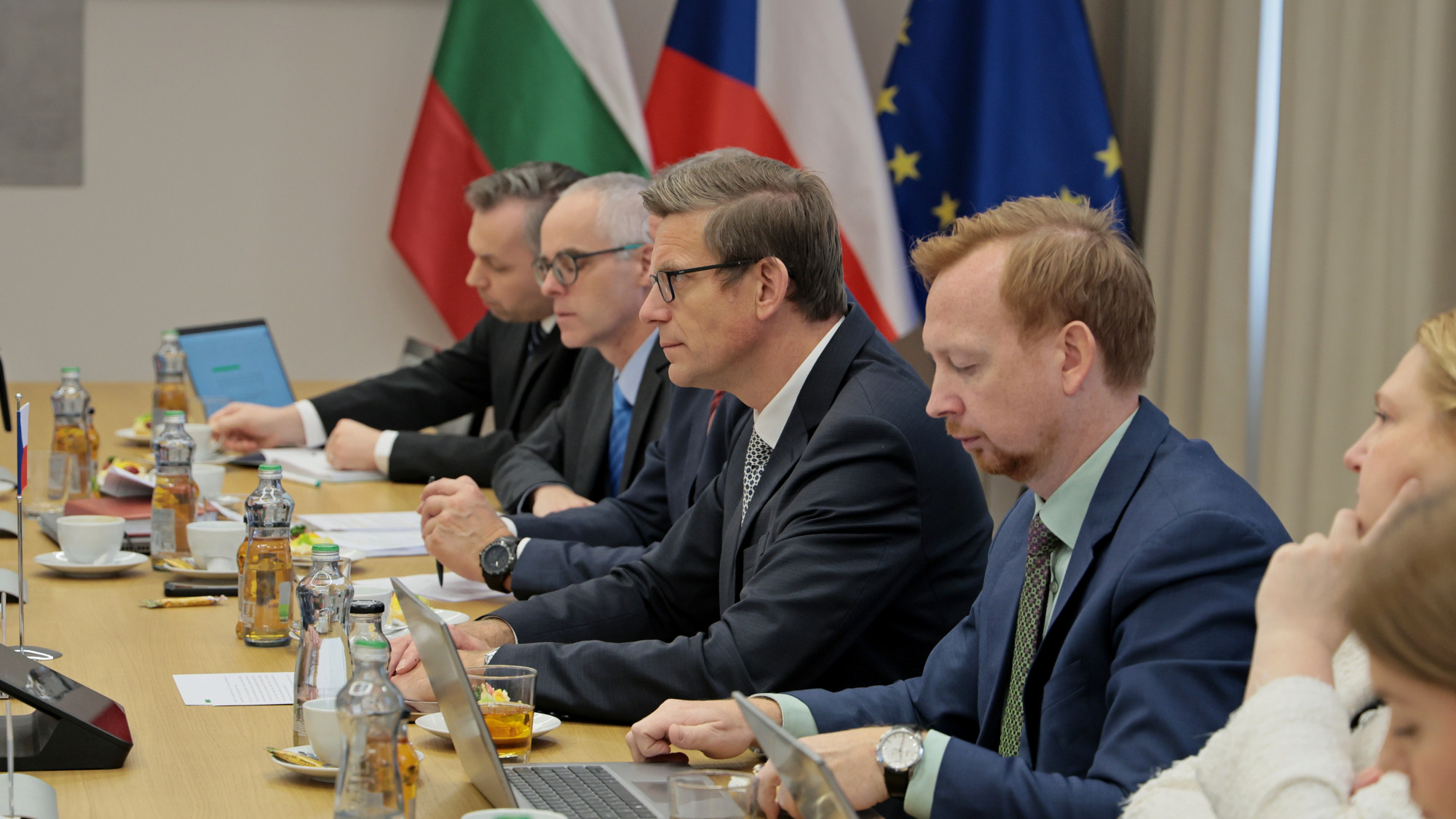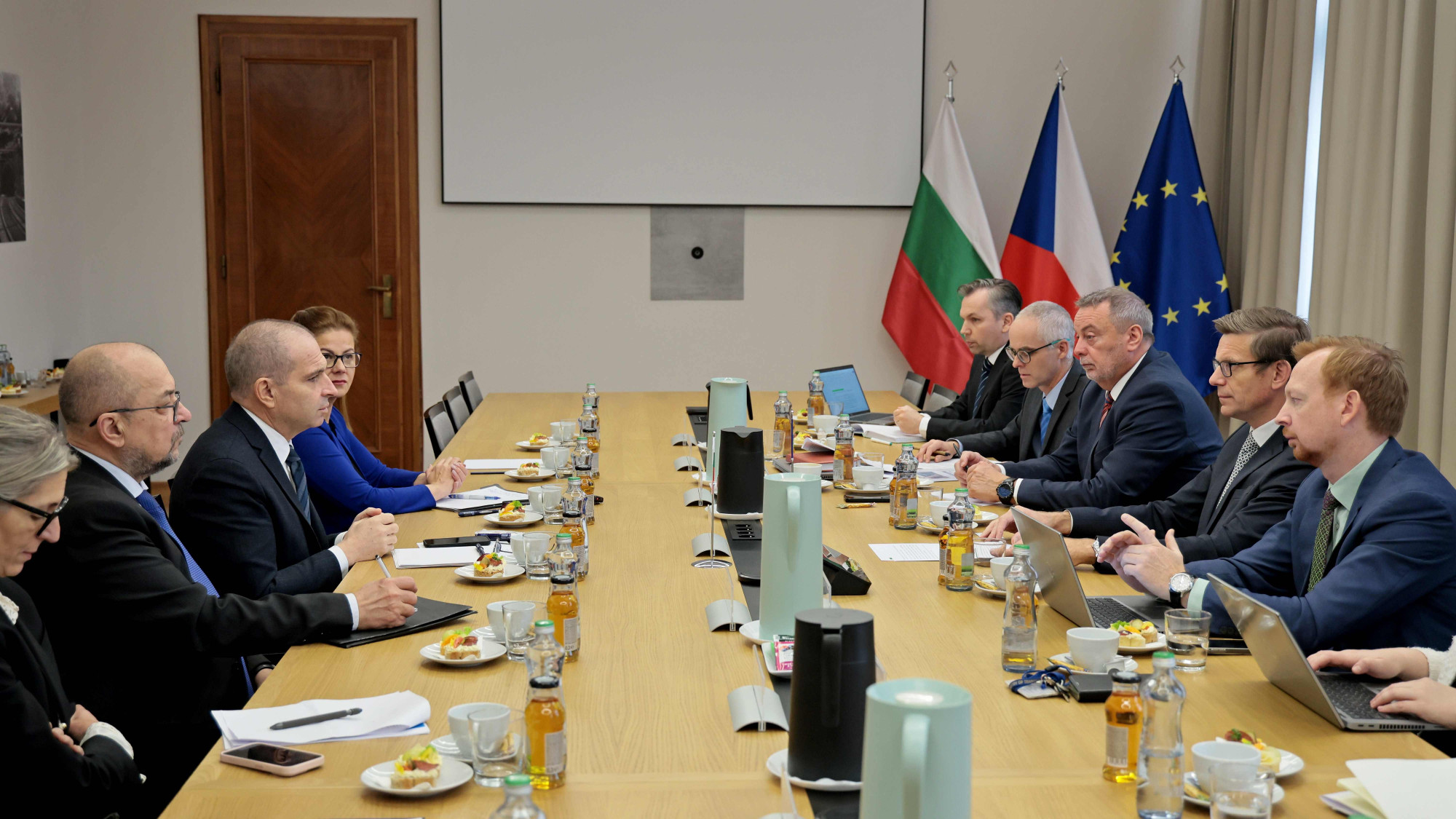Bulgaria can benefit from and draw on the successful Czech experience in the liberalisation of railway services. This was stated by Deputy Prime Minister and Minister of Transport and Communications Grozdan Karadjov after his meeting with the Minister of Transport of the Czech Republic, Martin Kupka, in Prague. The two Ministers discussed the development of the railway sector, modernisation, and future reforms in the public transport systems of both countries.
Deputy Prime Minister Karadjov underlined the excellent partnership between the Bulgarian Ministry of Transport and the company Škoda. “We are fully satisfied with what we saw yesterday at the production facilities. We expect the new 25 trains to arrive in Bulgaria within the planned timeframe — gradually from January to August next year. They are extremely necessary, as the country is currently experiencing a serious shortage of rolling stock,” he noted.
For his part, Minister Kupka stated that the Czech Republic attached strategic importance to rail transport and had companies and technologies capable of offering the highest quality to its partners, including Bulgaria.
Deputy Prime Minister Karadjov emphasised that opening the railway sector in Bulgaria to competition was key to improving the quality of passenger services. “The deadline for submitting proposals under the procedure for awarding railway transport services for the next 12 years expires in two days. By mid-December we will know which operators have been selected. We have one year until the new contracts enter into force, and during this period it is important to prepare for competition and the challenges arising from liberalisation,” Karadjov said. He pointed out that over the next 12 months Bulgaria had to develop and apply effective mechanisms for quality control of rail services in an open market, including clear performance indicators and passenger comfort standards.
Minister Kupka presented the Czech model of train management as well. In the Czech Republic, regional rail services were assigned and supervised by regional authorities, while the Ministry of Transport was responsible for long-distance trains. According to him, key quality indicators included reducing delays and ensuring good connections between different types of transport.
Minister Kupka welcomed Bulgaria’s active transport policy. The two Ministers discussed the Czech experience in opening up the railway market, including regulation, oversight, and service organization.
Deputy Prime Minister Karadjov paid special attention to the need for good coordination between the various modes of transport. “Our goal is to achieve excellent coordination between all transport services,” he noted. Karadjov also presented the Bulgarian model for a unified ticketing system, included in the new Public Transport Act. “We will create unified legislation for all types of transport operating under a common national transport scheme, which forms the basis of fairer and more sustainable public transport,” he added. The Minister emphasized that, as a result of fragmented or non-functioning legislation, more than 700 settlements in Bulgaria had been left without public transport to that moment.
For his part, Minister Kupka explained that the Czech Republic has a unified ticketing system for all rail operators, but the differing organization of bus services remained a challenge — the country had 13 separate ticketing systems across its 14 regions. He added that the Czech Republic ranked second in Europe in transport infrastructure investment relative to GDP and continued to work toward integration between all modes of transport.
During his visit to the Czech Republic, Deputy Prime Minister Grozdan Karadjov held meetings with the national rail carrier “České dráhy,” as well as with representatives of Leo Express and Arriva — private companies that had been executing public rail service contracts in the Czech Republic.

